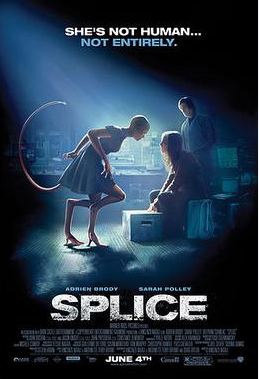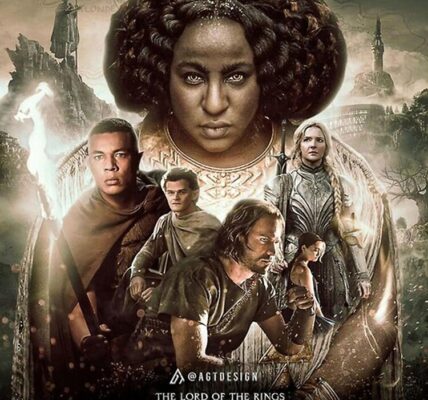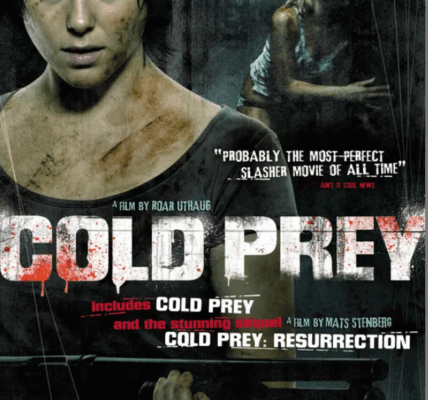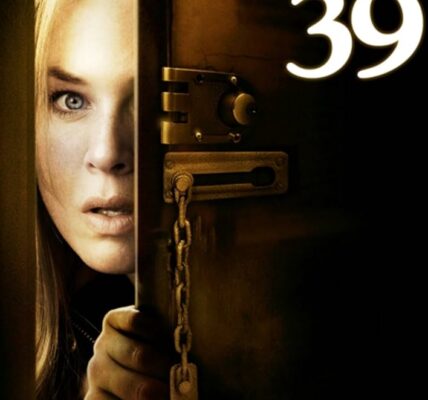1. Plot Summary
Clive Nicoli and Elsa Kast are ambitious genetic engineers working for a biotech firm called N.E.R.D. Their early experiments produce hybrid animal creatures (Fred and Ginger) designed for useful protein extraction. However, Elsa pushes the envelope: she and Clive secretly decide to introduce human DNA into their next creature, creating a hybrid they hope could revolutionize science.
They succeed in creating a female human-animal hybrid which they name Dren. She develops very quickly, both physically and mentally, aging fast, showing human-child intelligence, but also displaying more alien / creature-like traits: amphibious breath, animal instincts, wings later on, carnivorous tendencies.
As Dren grows, the moral, emotional, and ethical lines become blurred. Elsa forms a strong maternal bond with Dren; Clive is more ambivalent. Secrets, fear of the creature, the consequences of their creation come to a head: Dren becomes dangerous, behavior becomes harder to control, the secret laboratory ethics conflict with their feelings, and the project spirals out of control.
Toward the end, Dren’s behavior becomes more unpredictable; confrontations happen; there are tragic consequences, betrayals, and the film ends with a morally ambiguous note especially about parenthood, responsibility, science and what it means to create life. Also, Elsa ends up pregnant (which raises further ethical ambiguity) with the implication that human-animal hybrid implications may not be over.
2. Notable Elements
What stands out (strengths) & what is less strong:
Strengths:
- Creature / Visual Effects: The design and evolution of Dren are compelling. The film uses a mix of practical effects, prosthetics, digital effects to render the creature, especially in its different stages (young/infant, adolescent, adult). Scenes like the initial birth of Dren, her growth, and physical traits (gills, wings, stinger) are eerie and believable.
- Moral complexity / bioethics: The film doesn’t simply present a monster or creature feature; it delves into questions of responsibility, scientific hubris, what defines humanity, parental bonds, control vs letting go. Clive and Elsa are each confronted with consequences of their decisions.
- Performances: Adrien Brody and Sarah Polley bring weight to their characters, making the scientist couple more than just “mad scientists.” Delphine Chanéac as Dren is also impressive in her capacity to go from vulnerable to dangerous, mixing human emotions with alien/creature traits.
- Tone / Atmosphere: Much of the film maintains tension, dread, and emotional discomfort. The laboratory scenes, isolation, the secrets, the moments when Dren’s actions become unpredictable—all of these are handled in a way that builds unease. Visuals (lighting, color palettes, lab aesthetics) contribute well.
Weaknesses:
- Some plot predictability / horror tropes: As Dren becomes more uncontrollable, the film veers into more standard “creature horror” territory. Some of the final act’s action / chase / fight sequences feel less original.
- Emotional inconsistencies / boundary pushing discomfort: Because the film borders into very uncomfortable relationships (e.g. Dren’s sexual behavior toward Clive, etc.), some viewers find those scenes disturbing beyond what feels narratively justified. The film leans heavily into taboo, which is intentional, but that also risks alienating some audience.
- Lesser development for side characters: While Elsa, Clive, and Dren are central, other characters (like bosses, etc.) have less depth; some decisions seem driven by plot necessity rather than deeper character motivation.
3. Themes and Messages
Major themes the film explores, and how relevant they are:
- “Playing God” and scientific hubris: The central moral question is how far scientists should go in manipulating life, mixing human and non-human DNA, and whether boundaries should be respected. The film raises questions about when curiosity or ambition betrays responsibility.
- Parenthood, identity, attachment: Dren is treated as both an experiment and a child. Elsa’s maternal feelings emerge; Clive’s feelings shift. The emotional bond complicates the scientific detachment they think they must maintain. Identity is fluid: Dren is neither fully human nor animal. The film probes what makes us human (emotion, thought, biology).
- Ethics vs profit / corporate oversight: Their firm (N.E.R.D.) forbids certain experiments but also has interests in profit. The conflict between what is scientifically possible, what is ethically acceptable, and what corporate/governing constraints impose is central.
- Consequences of secrets and denial: Many of the tragic developments in the film stem from secrecy, denial, or rationalizing away uncomfortable truths. Also themes of control vs letting things evolve.
- Sexuality, taboo, boundary crossing: The film does not shy away from disturbing or taboo matters (sexual, parental boundary, incestuous overtones), which force the audience to consider discomfort. Not just for shock, but to underline how breaking ethical, biological, or moral boundaries has psychological consequences.
Relating to holiday traditions / sentiments: Splice is not a holiday film; its tone is dark, experimental, often uncomfortable. However, some of the themes like family, responsibility, love vs fear, protection vs temptation are also at the heart of many holiday stories. If one frames it loosely, the narrative’s exploration of parental love, unintended consequences, moral decisions might resonate during times when people reflect on values. But it’s a very non-traditional pairing for holidays.
4. Personal Impressions
Here are my thoughts, what worked well, and where I felt the film falters:
What I admired:
- The ambition and boldness. Splice doesn’t play it completely safe; it takes risks (narrative, emotional, moral). Scenes that disturb or surprise are not just for shock but to force reflection.
- The creature design and evolution of Dren are strong. I liked how different stages of her life are portrayed: innocence, curiosity, danger. The mix of human and non-human traits makes her more than just a monster.
- The performances are good. Particularly Sarah Polley’s Elsa, whose psychological discomfort, guilt, fascination, fear, and love are quite layered. Adrien Brody brings weight.
- It raises interesting philosophical and bioethical questions without always giving easy answers. The moral ambiguity is part of what lingers with you.
What I didn’t like as much:
- The final act felt a bit uneven — once the horror element accelerates, some of the transitions feel abrupt, and parts feel more conventional. After the fascinating buildup, some of the “monster vs humans” scenes feel like more typical horror fare.
- The taboo sexual/relational content is very daring, but some might feel it crosses into discomfort without enough narrative justification. For example, the scene where Dren seduces Clive is deeply unsettling; the film tries to contextualize it, but for some viewers, it may feel exploitative.
- Some of the ethical issues introduced (for example, about abortion or the rights of the creature) are hinted at but not fully explored. The film opens many doors but doesn’t always walk through all of them.
5. Audience Recommendations
Who might especially enjoy Splice, and who may want to skip it:
Would enjoy if you:
- Like science fiction with biological / bioethical themes (think Frankenstein, The Fly, etc.).
- Appreciate horror that’s psychological as much as physical; the tension, the moral abhorrence, the weirdness.
- Are okay with disturbing or taboo content; comfortable being challenged, feeling uncomfortable.
- Enjoy strong central performances with complex emotional arcs, rather than just creature terror.
- Want films that raise questions rather than provide neat, clean resolutions.
Mightn’t enjoy if you:
- Prefer horror without strong sexual or taboo overtones. Some of Splice’s content might be too unsettling.
- Prefer happy, unambiguous endings. This film is morally murky, not comforting.
- Dislike “science gone wrong” tropes, or creature horror where the creature becomes dangerous in multiple ways.
- Need strong development of all side characters; in Splice, the focus is tightly on the core trio (Elsa, Clive, Dren), so other characters are less explored.
6. Conclusions and Rating
Splice is a provocative, ambitious film. It mixes horror, science fiction, and psychological complexity. It won’t be for everyone — its darker, more taboo aspects and its morally ambiguous conclusions make it challenging — but those same things are what make it memorable. It doesn’t provide easy moral lessons; instead it forces viewers to ask questions about creation, responsibility, boundaries, what makes someone human, and the cost of ambition and love.
Final Recommendation: If you want a sci-fi horror film that is daring, a bit disturbing, and which will leave you thinking long after the credits, Splice is a strong pick. It’s especially worthwhile for those interested in the ethics of science, or who like their creature features with emotional and philosophical depth.
Star Rating: ★★★★☆ (4 out of 5)
Watch more:




